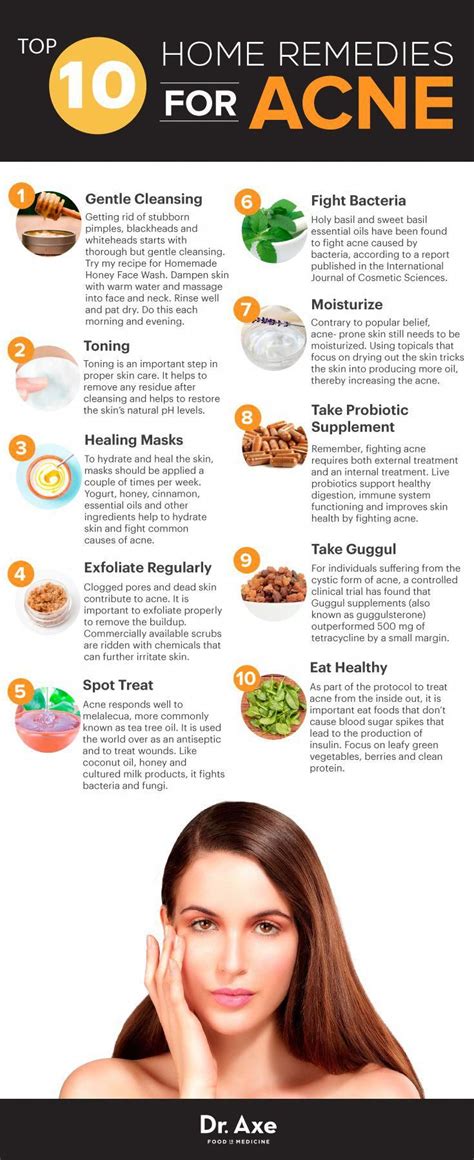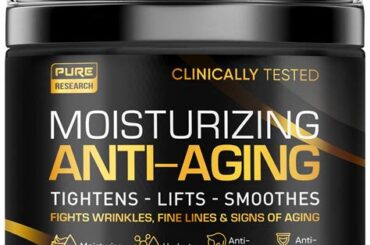Understanding Acne-prone Skin
Acne is a common skin condition that affects millions of people worldwide. One of the key factors in effectively managing and treating acne is understanding the underlying causes and triggers of this condition. Acne-prone skin is characterized by the presence of blackheads, whiteheads, pimples, and inflammation, which can be embarrassing and affect one’s self-esteem. By gaining a better understanding of acne-prone skin, individuals can take proactive steps to prevent and treat breakouts.
One of the primary causes of acne is the overproduction of oil, known as sebum, by the sebaceous glands in the skin. This excess oil can clog the hair follicles and lead to the formation of acne. Hormonal imbalances, especially during puberty, can stimulate the sebaceous glands to produce more oil, making teenagers more susceptible to acne breakouts. Additionally, certain medications, such as corticosteroids and lithium, can also trigger acne flare-ups.
Another contributing factor to acne-prone skin is the presence of bacteria called Propionibacterium acnes (P. acnes). This bacterium is present on everyone’s skin, but in individuals with acne-prone skin, it can multiply rapidly and cause inflammation. When the hair follicles become clogged with oil and dead skin cells, it creates the perfect environment for P. acnes to thrive, leading to the formation of red and inflamed pimples.
- Excessive oil production: The sebaceous glands in acne-prone skin produce an excessive amount of oil, leading to clogged follicles and breakouts.
- Hormonal imbalances: Fluctuations in hormone levels, especially during puberty, can trigger acne breakouts.
- Bacterial overgrowth: The presence of P. acnes bacteria on the skin can multiply rapidly and contribute to inflammation and pimples.
Understanding the specific triggers of acne-prone skin is crucial in developing an effective skincare routine that targets the root causes of acne. By incorporating the use of oil-free and non-comedogenic products, individuals can minimize the risk of clogged pores and breakouts. Regular cleansing and gentle exfoliation can help remove excess oil and dead skin cells, preventing them from clogging the hair follicles. It’s essential to choose skincare products that contain salicylic acid or benzoyl peroxide, as these ingredients are known for their effectiveness in treating acne.
| Skincare Tips for Acne-Prone Skin |
|---|
| 1. Cleanse gently: Use a mild facial cleanser to remove dirt, oil, and impurities without stripping the skin of its natural moisture. |
| 2. Avoid harsh scrubbing: Scrubbing the skin aggressively can irritate and worsen acne. Opt for gentle exfoliants or chemical exfoliators instead. |
| 3. Use non-comedogenic products: Look for skincare and makeup products that are labeled as non-comedogenic to prevent pore blockage. |
| 4. Moisturize: Even acne-prone skin needs hydration. Choose oil-free and lightweight moisturizers to avoid clogging the pores. |
| 5. Treat with spot treatments: Target individual breakouts with spot treatments containing active ingredients like salicylic acid or benzoyl peroxide. |
In conclusion, understanding acne-prone skin is the key to effectively managing and treating acne breakouts. By identifying the specific triggers and causes of acne, individuals can develop a tailored skincare routine that addresses their unique needs. Consistency and patience are essential when dealing with acne-prone skin, as results may take time to show. With the right approach and a focus on prevention, individuals can achieve clearer and healthier skin.
Identifying the Triggers of Acne
When it comes to acne, keeping the triggers at bay is essential for maintaining clear skin. Identifying these triggers can be a bit of a challenge, as they can vary from person to person. However, understanding the common factors that contribute to acne breakouts can help to significantly reduce their occurrence. In this blog post, we will explore some of the most common triggers of acne and ways to manage them effectively.
1. Hormonal Imbalances: Hormonal imbalances are one of the primary causes of acne breakouts, especially in teenagers and women. Fluctuations in hormonal levels can lead to increased oil production, clogged pores, and inflammation, resulting in acne. Addressing hormonal imbalances often requires the assistance of a healthcare professional, who may recommend hormonal birth control or other medications to regulate hormone levels.
2. Diet and Lifestyle: The food we eat and our lifestyle choices can have a significant impact on our skin’s health. Consuming a diet high in processed foods, refined sugars, and unhealthy fats can contribute to acne breakouts. Additionally, stress, lack of sleep, and not taking proper care of the skin can also worsen acne symptoms. To reduce acne triggers in terms of diet and lifestyle, incorporating a balanced diet with plenty of fruits, vegetables, whole grains, and lean protein is crucial. Moreover, managing stress levels, getting enough sleep, and following a consistent skincare routine can help prevent acne.
3. Environmental Factors: Environmental factors can be another trigger for acne breakouts. Living in a highly polluted area or being exposed to certain chemicals and irritants can lead to clogged pores and inflammation, causing acne. It’s important to protect the skin by cleansing it thoroughly and using non-comedogenic (non-pore-clogging) skincare products. Wearing sunscreen daily, avoiding excessive sun exposure, and keeping the skin clean and moisturized are essential steps in preventing breakouts due to environmental factors.
By identifying and managing these common triggers, individuals can significantly reduce the frequency and severity of acne breakouts. It is important to remember that everyone’s skin is unique, and what may trigger acne in one person may not affect another in the same way. Experimenting with different skincare routines, maintaining a healthy lifestyle, and seeking professional advice can help individuals gain control over their acne-prone skin.
Developing an Effective Skincare Routine
Developing an effective skincare routine is essential for maintaining healthy and glowing skin. With the plethora of products available in the market, it can often be overwhelming to know where to start. However, by understanding your skin type and incorporating the right products and techniques into your daily routine, you can achieve remarkable results.
First and foremost, it is crucial to identify your skin type. Is it oily, dry, combination, or sensitive? This knowledge will help determine the type of products that will work best for your skin. For instance, individuals with oily skin may benefit from using oil-free or mattifying cleansers and moisturizers, while those with dry skin may prefer products that provide extra hydration. Understanding your skin type will guide you in making informed decisions and selecting products tailored to your specific needs.
Once you have determined your skin type, it’s time to create a skincare routine that addresses your individual concerns. A basic routine typically consists of cleansing, toning, moisturizing, and protecting the skin. Cleansing is essential as it removes impurities, excess oil, and makeup from the skin’s surface, preventing clogged pores and breakouts. Toning helps balance the skin’s pH levels and prepares it to better absorb moisturizers and treatments.
Moisturizing is a crucial step regardless of your skin type. Even individuals with oily skin need to moisturize as skipping this step can lead to the overproduction of oil. Look for a lightweight, oil-free moisturizer that suits your skin type. Lastly, protecting your skin from harmful UV rays is imperative. Incorporate a broad-spectrum sunscreen with at least SPF 30 into your daily routine, regardless of the weather conditions or time of year.
Additionally, for those looking to address specific skin concerns such as acne or aging, incorporating targeted treatments is important. Acne-prone individuals can benefit from using products with ingredients like salicylic acid or benzoyl peroxide, which help unclog pores and reduce inflammation. Those concerned with signs of aging can look for products containing retinol or hyaluronic acid, known for their ability to improve the skin’s texture and reduce the appearance of fine lines and wrinkles.
In conclusion, developing an effective skincare routine is essential for maintaining healthy, radiant skin. Begin by identifying your skin type to make informed decisions about the products you choose. A basic routine should include cleansing, toning, moisturizing, and protecting the skin. Don’t forget to tailor your routine to address specific concerns by incorporating targeted treatments. Consistency and patience are key, as it takes time to see results. By following these steps and prioritizing self-care, you can achieve the skin of your dreams.
Exploring Natural Remedies for Acne
Acne is a common skin condition that affects millions of people worldwide. It can be frustrating and even embarrassing, leading many individuals to search for effective remedies. While there are various over-the-counter and prescription treatments available, some people prefer to explore natural remedies for acne. These remedies often rely on ingredients derived from nature, such as herbs, essential oils, and plant extracts. In this blog post, we will delve into the world of natural remedies for acne and discuss their potential benefits.
One popular natural remedy for acne is tea tree oil. Extracted from the leaves of the melaleuca tree, tea tree oil has been used for centuries for its antiseptic and anti-inflammatory properties. It is believed to help reduce the severity of acne breakouts and prevent new pimples from forming. To use tea tree oil, simply dilute a few drops in a carrier oil, such as jojoba or coconut oil, and apply it to the affected areas with a cotton swab. However, it is important to note that tea tree oil can cause skin irritation in some individuals, so it is advisable to do a patch test before using it on the entire face.
Another natural remedy that is frequently touted for acne treatment is aloe vera. This succulent plant has been used for centuries for its healing and soothing properties. Aloe vera gel contains vitamins, minerals, and enzymes that can help reduce inflammation and promote skin healing. It is often used topically to soothe acne-prone skin and reduce redness and swelling. Aloe vera gel can be applied directly to the skin or added to facial masks or homemade cleansers. For best results, look for pure aloe vera gel without added fragrances or chemicals.
In addition to tea tree oil and aloe vera, there are many other natural remedies that may help alleviate acne symptoms. Some individuals find success in using witch hazel, a natural astringent, to reduce oiliness and tighten pores. Others turn to green tea, which is rich in antioxidants, to calm inflammation and fight acne-causing bacteria. Manuka honey, apple cider vinegar, and turmeric are also often praised for their potential acne-fighting properties. However, it is important to remember that everyone’s skin is different, and what works for one person may not work for another. It may take some trial and error to find the natural remedies that are most effective for your skin.
List of Natural Remedies for Acne:
- Tea tree oil: Known for its antiseptic and anti-inflammatory properties.
- Aloe vera: Contains healing and soothing properties to reduce inflammation.
- Witch hazel: A natural astringent that can help reduce oiliness and tighten pores.
- Green tea: Rich in antioxidants to calm inflammation and fight acne-causing bacteria.
- Manuka honey: Has potential acne-fighting properties.
- Apple cider vinegar: Can be used as a toner to balance pH levels and fight bacteria.
- Turmeric: Known for its anti-inflammatory and antibacterial properties.
Conclusion
Natural remedies for acne can be a gentle and potentially effective alternative to conventional treatments. However, it is important to approach them with caution and understand that results may vary. If you are considering incorporating natural remedies into your skincare routine, it is always a good idea to consult with a dermatologist or skincare professional to ensure they are safe for your specific skin type and condition. Remember, taking a holistic approach to skincare and addressing underlying factors, such as diet, lifestyle, and stress, can also play a significant role in managing acne.
Preventing Acne Scarring and Pigmentation
Acne is a common skin condition that affects people of all ages. While many focus on treating the active breakouts, it is equally important to prevent acne scarring and pigmentation. Acne scars and pigmentation can have a lasting impact on a person’s self-esteem and confidence. Fortunately, there are several preventive measures and skincare tips that can help minimize the risk of scarring and pigmentation.
One of the key factors in preventing acne scarring and pigmentation is to avoid picking or popping pimples. Although it may be tempting to squeeze out the pus, this can significantly increase the risk of scarring. When a pimple is popped, the bacteria and debris can spread to the surrounding skin, causing inflammation and potential damage.
Additionally, it is crucial to protect your skin from harmful UV rays. Sun exposure can exacerbate pigmentation and make acne scars more noticeable. Always apply a broad-spectrum sunscreen with a high SPF before stepping out in the sun. Look for oil-free or non-comedogenic options to avoid clogging your pores. Wearing a wide-brimmed hat and seeking shade during peak sunlight hours can provide extra protection.
Moreover, incorporating skincare products that contain ingredients like retinol and vitamin C can help prevent acne scarring and pigmentation. Retinol promotes cell turnover and collagen production, which can improve the overall texture and tone of the skin. Vitamin C has antioxidant properties that can fade dark spots and even out the complexion.
- Include gentle exfoliation in your skincare routine to prevent acne scarring and pigmentation. Exfoliating helps remove dead skin cells and promotes cell regeneration. Opt for chemical exfoliants like glycolic acid or salicylic acid, which can effectively unclog pores and reduce the risk of acne scars.
- Always moisturize your skin, even if you have oily or acne-prone skin. Proper hydration can promote healing and prevent dryness, which can potentially lead to scarring. Look for lightweight, non-comedogenic moisturizers that won’t clog your pores.
- Consider professional treatments like chemical peels or laser therapy to address existing acne scars and pigmentation. These treatments can help stimulate collagen production, fade discoloration, and improve the overall texture of the skin. Consult with a dermatologist to determine the most suitable option for your specific needs.
| Prevention Tips | Treatment Options |
|---|---|
| Avoid picking or popping pimples | Chemical peels |
| Protect skin from sun exposure | Laser therapy |
| Use skincare products with retinol and vitamin C | |
| Exfoliate regularly | |
| Maintain proper skin hydration |
Preventing acne scarring and pigmentation requires consistent and proactive skincare. By implementing these preventive measures and using suitable treatment options, you can minimize the risk of scarring and achieve clearer, healthier skin.
Frequently Asked Questions
Q: What causes acne-prone skin?
A: Acne-prone skin is often caused by factors such as excess oil production, clogged pores, hormonal changes, and bacteria buildup.
Q: How can I identify the triggers of my acne?
A: Identifying acne triggers can be a personal journey, but common culprits include certain foods, stress, hormonal changes, skincare products, and environmental factors.
Q: What should be included in an effective skincare routine for acne-prone skin?
A: An effective skincare routine for acne-prone skin should include gentle cleansing, exfoliation, treatment products containing acne-fighting ingredients, moisturization, and sun protection.
Q: Are there any natural remedies that can help with acne?
A: Yes, some natural remedies like tea tree oil, aloe vera, honey, and green tea extract may help reduce inflammation and fight acne-causing bacteria. However, it’s important to consult with a dermatologist before incorporating these remedies into your skincare routine.
Q: How can I prevent acne scarring and pigmentation?
A: To prevent acne scarring and pigmentation, it’s crucial to avoid picking or popping pimples, protect your skin from the sun, use products with ingredients like retinol or vitamin C, and seek professional treatments such as chemical peels or laser therapy if necessary.
Q: Will my skincare routine alone get rid of acne?
A: While a good skincare routine is vital for managing acne, it may not completely eliminate it. It’s important to combine skincare with other approaches such as a healthy diet, managing stress, and possibly medical treatments prescribed by a dermatologist.
Q: How long does it take to see results from an acne skincare routine?
A: The timeframe for seeing results from an acne skincare routine can vary depending on the individual and the severity of acne. It may take anywhere from a few weeks to a few months to notice significant improvements, so be patient and consistent with your routine.





